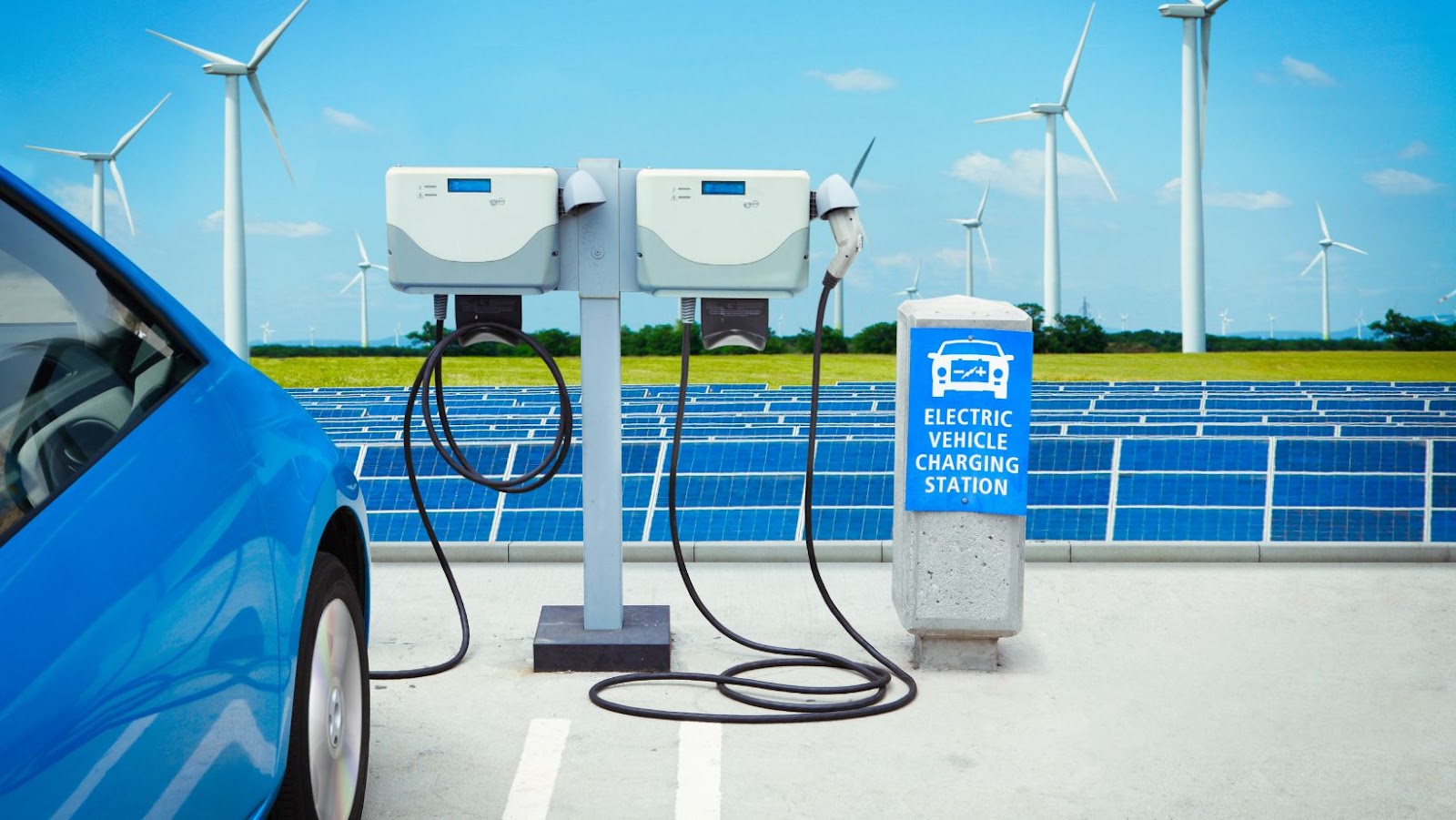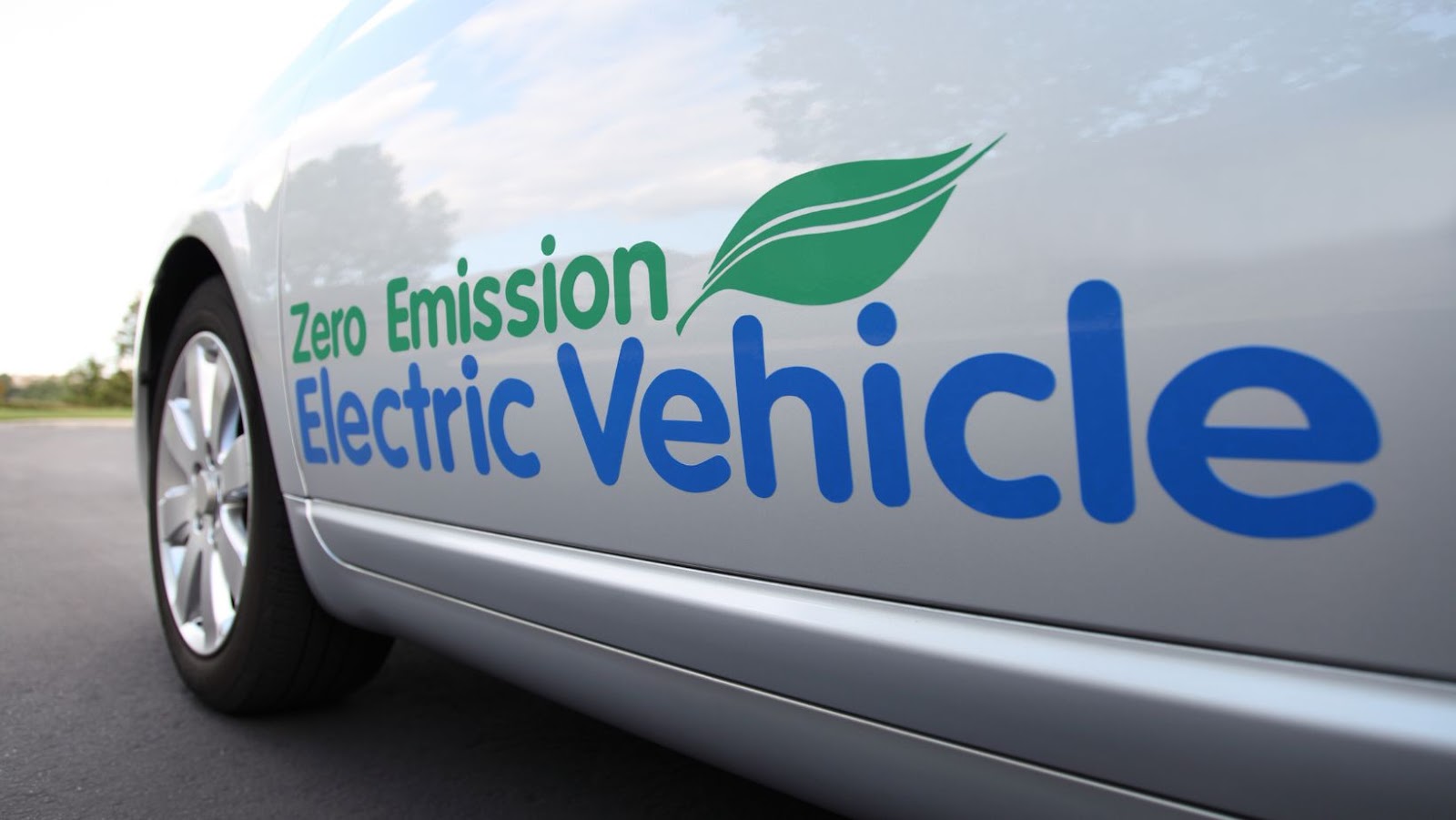
When Rivian announced their $1.3 billion investment in late December 2020, it was another statement of the company’s ambitions to fundamentally change how we think about electric vehicles (EVs) and their role in the automotive industry.
This injection of capital, which included investments from Amazon, Ford, and others, came at a critical time for the company as it seeks to take its first steps in the EV market. Let’s take a closer look at the investments, how it could benefit Rivian, and what it means for the automotive industry as a whole.
Rivian Raises Another $1.3 Billion To End Year
Rivian is an American automotive and technology company in Plymouth, Michigan that develops electric vehicles. Founded in 2009 by RJ Scaringe, their mission is to integrate technology and design to build products that inspire people and move the world forward. Rivian seeks to revolutionize the automotive market by producing vehicles with all-wheel drive, extended range batteries, over-the-air updates, and new levels of active safety capabilities.
Rivian released its first two vehicles – the R1T pickup truck and the R1S SUV – in late 2020. Each vehicle offers drivers exciting performance capabilities such as Instant Torque which delivers full power from a dead start and allows for smooth maneuvering on terrain such as snow or mud. The interior has been designed for comfort and convenience with features like air conditioning outlets behind each headrest, adjustable foot panels both front and rear seating areas, storage under all seats for easy stowaway of items such as water bottles or laptops.
To create this innovative electric platform Rivian has invested heavily in research & development – investing over $3 billion so far – to build an industry benchmark of advanced engineering consistently applied across all of its products. They have also partnered with major companies such as Amazon for delivery services, Ford for using their proprietary components on the Ford F-150 hybrid electric truck platforms, and Lowe’s home improvement stores to establish a small fleet of delivery trucks using independent Rivian chassis platforms.
In addition to eco-friendly transportation solutions touting luxury features at competitive costs, Rivian is taking steps towards mobility integration by tackling infrastructure challenges across America with cutting edge technology such as embedded wireless charging that can offer dynamic current output up to 150 kW per vehicle charged wirelessly at highway speeds. With these efforts they are not only helping bolster electric vehicle adoption but setting an example within their framework – changing not only how consumers see driving but how cities are powered everywhere.
Overview of the automotive industry
The global automotive industry is one of the largest and most dynamic industries in the world. It includes various specialties and skill sets ranging from design and engineering, assembly, manufacturing and sales to marketing, analytics and environmental responsibility. At its foundation lies innovation – from new technologies to new business models – that provides the basis for industry growth and profitability.
Rivian is a new player in the automotive industry with a mission to redefine what our transportation can look like. Its electric vehicles provide unprecedented performance capabilities and are making waves in the mainstream market with their sustainability credentials and aesthetics. Its presence will continue to have an ever-growing impact on how this sector looks at itself and where it focuses its efforts moving forward. In particular, Rivian’s vehicles are setting standards for other manufacturers regarding efficient use of materials, powertrain design, connectivity features, safety technology, autonomous driving capability and interior design options.
Impact on the Automotive Industry
Rivian, an American electric vehicle manufacturer, has made headlines recently with their recent funding round of $1.3 billion. This huge amount of capital raised has had a major impact on the automotive industry.
Rivian has been able to capitalize on the shift from traditional gasoline powered vehicles to electric vehicles, positioning them well to compete with industry giants such as Tesla.
This article will discuss the impact that Rivian’s recent funding has had on the automotive industry.
Rivian’s investment strategy
Rivian, a relatively new entrant into the automotive market, stands out from traditional auto manufacturers in that it takes a non-traditional approach to investing. The company has sought to work with major investors such as Amazon and Ford that enable it to increase its technological speed while reducing costs. Rivian’s approach has been to invest in innovative technologies such as electric motors, batteries, autopilot and enhanced firmware development. These investments have enabled Rivian to quickly develop its first electric vehicles, the R1T pickup truck and the R1S SUV.
Rivian’s investment strategy also involves partnering with other entities that can accelerate the company’s growth. By having access to technology developed at other companies or universities, Rivian can accelerate innovation faster than in-house research and development alone. Additionally, partnerships with larger companies can help reduce marketing and distribution costs which can improve profitability over time.
Finally, Rivian has combined its cutting-edge technology investments strategy with a focus on customer experience from concept creation through delivery. The company emphasizes using insights from customer feedback loops and creating vehicles tailored around customer needs rather than those dictated by styling or personal tastes of Rivian’s leadership team members. By adopting this approach towards product development, Rivian quickly stands out amongst their competition within the industry due to their ability to stay ahead of changing consumer needs while reducing costs associated with product development cycles.
Rivian’s impact on the electric vehicle market
Rivian is an automotive company based in the United States focusing on electric vehicle technology. Established in 2009, the company has since become one of the largest companies in the industry and a leader in electric vehicle innovation. Its impact on the automotive industry has been felt particularly strongly in recent years, as more automakers have responded to customer demand for environmentally friendly transportation options.
Rivian’s influence on the electric vehicle market is wide-ranging and further enforces its role as an innovator of this technology. Rivian products feature advanced battery technology which provides customers with increased range and faster charging times, a customizable infotainment system with multiple display options, and forward-thinking designs that bring style to electric vehicles. This focus on practicality and aesthetics has enabled Rivian to make ownership of an electric car attractive and easy — making it more accessible for consumers looking for alternative transportation options.
The company’s advanced battery chemistry has resulted in higher efficiency across their lineup of vehicles, while their various levels of autonomous capabilities provide added convenience for customers. Rivian has also partnered with Amazon to provide technology services including Prime Delivery Charges— another example of how they utilize advanced technology to differentiate themselves from competitors in the auto industry.
In addition, Rivian’s plans for expansion have led them to open up new markets outside of North America such as Europe, Japan and China — enabling them to tap into larger pools of potential customers. The company’s presence will undoubtedly continue making an impact on the global automotive industry by providing quality vehicles at competitive prices; expanding into new markets; becoming a leader in EV innovation; and offering technologies creating convenience for consumers looking for alternative forms of transportation.
Rivian’s impact on the traditional automotive industry
Rivian’s entry into the electric vehicle (EV) market is having a dramatic impact on the traditional automotive industry. While Tesla has been an early leader in the EV market, Rivian has quickly become a major player in its own right, as well as setting a new standard for innovation, quality and performance.
Rivian offers an entirely different approach to EVs than traditional automakers have offered over the past decade. Instead of relying solely on battery-powered EV technology, Rivian vehicles are powered by batteries and powerful electric engines. This combination allows Rivian vehicles to achieve longer range and higher speeds than other EVs. Additionally, though they are still developing their lineup of EVs, they offer multiple vehicle types with various levels of customization and performance – something that no other EV currently offers.
Moreover, Rivian is pushing boundaries with driver safety in their vehicles – utilizing advanced driver-assist features as part of their easily navigable control systems. Though this level of safety was never seen in traditional automobiles before now, Rivan is making it available across all their models and constantly pushing for more design advancement.
Overall, Rivian’s entrance into the traditional automotive industry demonstrates how EVs are becoming mainstream within the automobile space much faster than ever before expected – not just because of their unique combination of technologies but also because they are making these technologies available at a competitive price point while maintaining quality standards that match or exceed what consumers expect from traditional automakers today.
Rivian’s Recent Funding Round
Rivian, the electric truck maker, recently closed a funding round that raised $1.3 billion. This brings their total funding to over $8 billion and further positions the company as a leader in the electric vehicle market.
This funding round will help Rivian expand their reach and create disruptive technologies that will shape the future of the automotive industry. Let’s look at Rivian’s recent funding round and what it will mean for the automotive industry.
Overview of the $1.3 billion round
Rivian’s recent $1.3 billion funding round has attracted significant attention, not only in the automotive industry but also from investors worldwide. The financing round was led by long-term investor T. Rowe, as well as Amazon, who have become a major partner and investor in the company, buying an 11% stake to fund Rivian’s mission to develop an electric pick-up truck and SUV that can be rapidly produced and become accessible to consumers around the world. This funding will allow Rivian to both expand their operations through the development of additional facilities and vehicles, as well as initiate a large scale marketing effort for the upcoming vehicles.
The remaining funds will go into research & development for autonomous driving software, new battery technologies & manufacturing processes, as well as investing in amplifying their digital side for seamless customer relationships with ease. With this funding now available to them, Rivian is set on shaking up how we transport ourselves. It promises to offer numerous environmental benefits and launch a more connected -and autonomous- driving experience for everyone who chooses them.

Investors involved in the round
Rivian recently announced a $2.5 billion investment, with significant investments from the large players in the automotive industry. The company’s Series D round of funding was led by investment firms managed by T. Rowe Price Associates, Inc., Amazon and BlackRock, and other substantial investors including Fidelity Management and Research Company LLC, Baron Capital Group and certain funds directly managed or advised by Vanguard. This $2.5 billion investment brings Rivian’s total funding to over $6 billion.
Analyzing Rivian’s Series D round of funding further reveals that Ford invested an additional $500 million, in addition to its initial investment of $500 million earlier this year. Ford’s aggregate capital commitment now stands at an estimated value of approximately $1 billion—which makes this a key strategic investment for the automaker considering its past interests in developing electric vehicles (EV). Additionally, hedge fund investor Coatue Management LP joined the round following Carlos Ghosn’s stake purchase in the company over the summer.
Using these investments to leverage Rivian’s existing position in eCommerce logistics services aimed at improving automotive technology, further advancements can be made throughout the entire industry—especially considering their access to more resources and deeper collaborative relationships with Tier 1 suppliers and distributors. The influx of capital suggests that as Rivian expands its product portfolio beyond electric pickup trucks and Sport Utility Vehicles (SUVs) into commercial applications such as delivery vans or all-terrain recreational utility vehicles; they’ll have ample financial backing to bring these products into fruition faster than ever before.
Impact of the funding on Rivian’s future
Rivian’s latest round of funding has been extremely important for the company’s future, allowing them to move forward with their vision for vehicles powered by alternative energy. The more than $2 billion that Rivian has raised from investors over the past year will help fund their growth including the construction of factories in Normal, Illinois, and backup facilities near Detroit. This influx of capital is necessary for the organization to stay ahead of the competition as new entrants enter the market.
The additional resources also mean Rivian can scale up its efforts as it begins to produce its first R1T electric truck. This vehicle has already impressed potential customers during demonstrations. Other potential products include an R1S SUV, a delivery van and an Amazon Prime-branded electric delivery vehicle created specifically with Amazon’s specifications in mind.
The newly acquired funds will help Rivian deliver on these projects and expand operations into Europe and other global markets in 2021. With this next phase of execution, Rivian is making itself one step closer to becoming a top player in EV/AV production–allowing us make even more significant contributions towards carbon neutrality on driven paths and beyond–with drivers around the world hopefully experiencing a radically new way to commute by summer 2021!
Conclusion
Rivian’s impressive foray into the market with the Rivian R1T and Rivian R1S electric vehicles has caused quite a stir in the automotive industry, with the company raising another $1.3 billion to end the year.
By taking an innovative approach to electric vehicles and infusing them with modern technology, Rivian has shown that it can compete with some of the biggest automobile companies in the world.
In this article, we will look at the impact that Rivian has had on the automotive industry.
Summary of Rivian’s impact on the automotive industry
Rivian has disrupted the automotive industry by introducing a suite of electric vehicle (EV) products, powered by its proprietary skateboard platform. Their advanced battery technology has enabled them to create high-performance EVs with maximum range, ensuring drivers can reliably travel long distances without charging as often. Moreover, their powertrain design includes a compact single-motor system powering each wheel individually, which increases efficiency and improves handling on various terrain types.
Their cutting-edge technology and user-centric design practices have enabled Rivian to bring a new level of innovation to the industry. Furthermore, they have significantly reduced their carbon emissions output compared to conventional petrol and petrol/diesel vehicles. This is an important factor for increasing EV adoption among consumers; as people become more aware of their negative carbon footprint impacts upon the environment from traditional internal combustion engine (ICE) vehicles, they will be more motivated to switch towards EVs powered by renewable energy.
Overall, Rivian’s impact on the automotive industry can be seen as extremely positive – it has increased consumer awareness and demand for EVs powered sustainably and offer superior performance compared to ICE vehicles. By introducing disruptive technology and consumer-friendly practices such as direct-to-consumer models, Rivian is quickly becoming one of the top EV companies in the world.
Future outlook for Rivian and the automotive industry
In light of Rivian’s success, it is safe to say that the future of the automotive industry looks very promising. Automotive companies are making a push into electric vehicles, and Rivian appears to be leading the way in terms of innovation and disruption. Their investment in new factories and self-driving technology shows their sights set on the long-term. Additionally, their products have demonstrated that they can produce vehicles with impressive performance, range, and efficiency.
Rivian has also attracted an impressive number of investors and partners, including Amazon and Ford, indicating they have a strong financial backing to help them succeed. This further demonstrates their commitment to becoming a leader in the future of autonomous driving and electric vehicles.
The automotive industry will continue evolving as new technologies emerge and regulations evolve. Rivian has set themselves up for success as a leader in this shift towards electric vehicles, which will create opportunities for other companies in this space as well. It remains to be seen if Rivian will become a major player in the automotive industry. Still, there’s no denying that they’ve already impacted the world of transportation.














